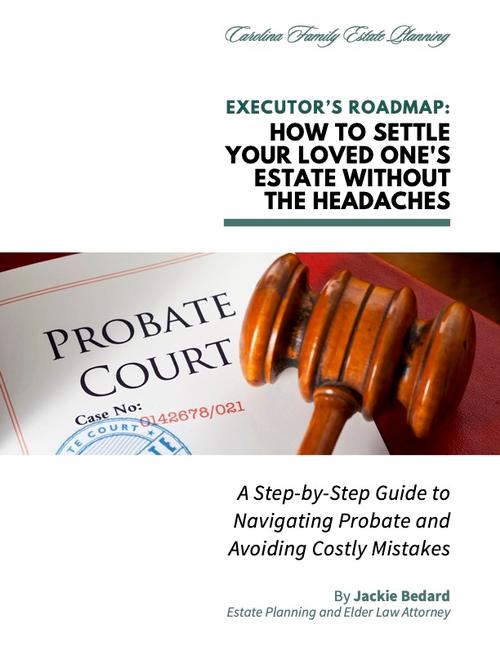 Attorney fees for the administration of a North Carolina estate will vary from one estate to another and the capacity in which the attorney is working. If the responsibilities of the attorney are limited to assisting the executor with the estate administration process, then the North Carolina statutory law provides that the attorney’s fees must be reasonable and not exceed 5% of the estate. Furthermore, the fees will offset the executor’s commission.
Attorney fees for the administration of a North Carolina estate will vary from one estate to another and the capacity in which the attorney is working. If the responsibilities of the attorney are limited to assisting the executor with the estate administration process, then the North Carolina statutory law provides that the attorney’s fees must be reasonable and not exceed 5% of the estate. Furthermore, the fees will offset the executor’s commission.
So, for example, if the executor hires an attorney to do the majority of the work, the executor’s commission will be relatively low to offset the attorney’s fees for handling the administration.
However, if the attorney provides legal services that are beyond routine estate administration, there is no cap on the amount of attorneys’ fees. They must simply be reasonable under the circumstances. This might include handling a will contest or estate litigation, lawsuits brought by creditors, wrongful death lawsuits, and similar services.
While there aren’t many statistics available on the subject, anecdotally, attorneys’ fees tend to average between 1% to 7% of the estate. Proportionally, smaller estates tend to pay a higher percentage in attorneys’ fees because there is a certain base amount of work that must be done, no matter the size of the estate.
Most trust and estate lawyers either bill on an hourly basis or some sort of flat fee arrangement. With hourly billing, a set hourly rate will be established for the lawyers' time as well as any other staff members' time who may work on the case. Generally, you will be invoiced separately for additional expenses such as postage, photocopying, filing fees, and the like.
Other attorneys may agree to work on a flat fee basis, sometimes calculated as a percentage of the value of the estate. Again, there aren’t many statistics available, but anecdotally, if the trust has been funded properly, attorneys’ fees tend to range between .5% to 2% of the estate, with smaller estates being more likely to be towards the higher end of the range.

